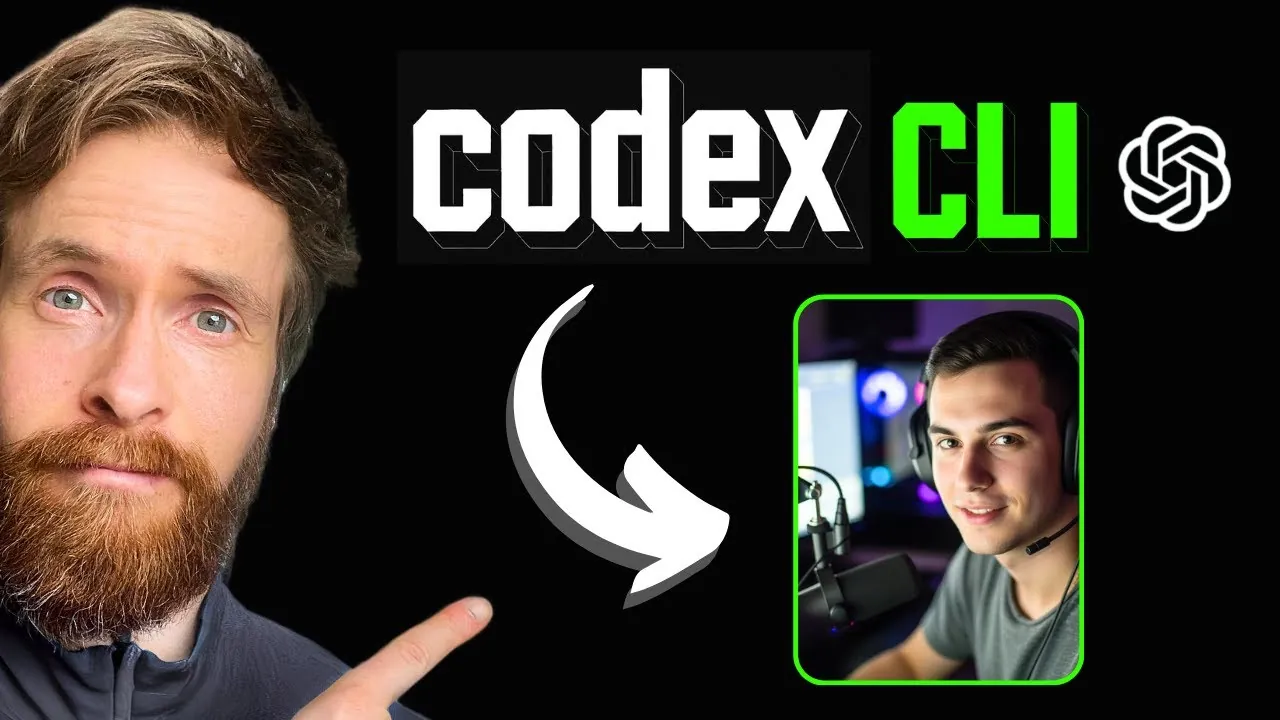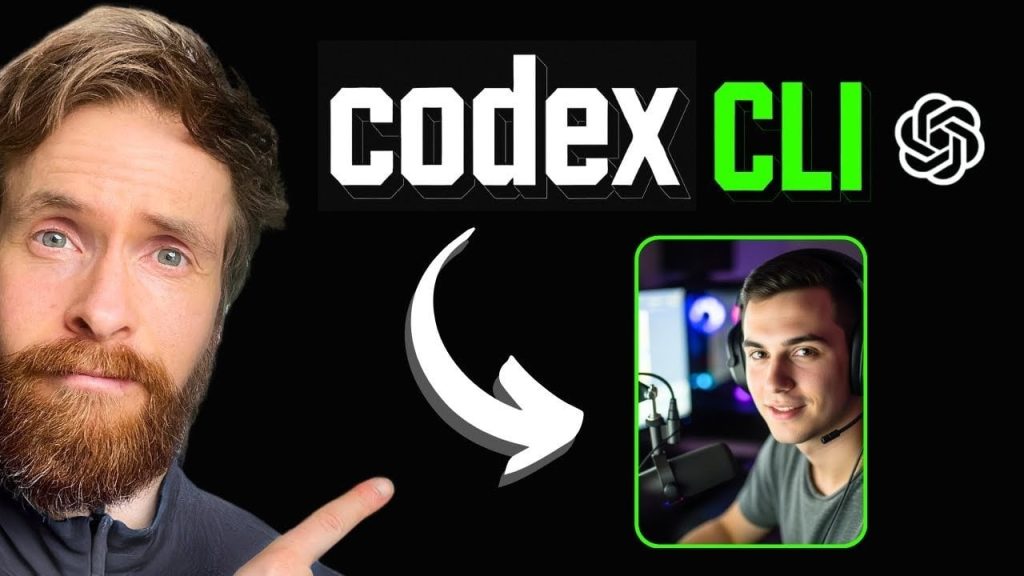
What if creating professional-grade videos required no more than a single image and a script? Imagine transforming these basic inputs into dynamic, visually engaging content with minimal effort, no advanced editing skills, no hours spent fine-tuning transitions. This is no longer a distant dream but a reality powered by the integration of OpenAI Codex and MCP servers. By combining innovative AI capabilities with modular workflows, this system redefines video automation, offering a streamlined solution for creators, marketers, and educators alike. Yet, as innovative as this may sound, the process isn’t without its challenges, raising questions about the balance between efficiency and precision in AI-driven production.
In this overview, All About AI explore how the synergy between OpenAI Codex and MCP servers enables the seamless creation of high-quality avatar videos, from script to screen. You’ll uncover how tools like 11 Labs, Nano Banana, and Omni Model work in harmony to automate traditionally labor-intensive tasks, while also addressing the system’s limitations, such as synchronization hiccups and tool call errors. Whether you’re curious about the technical intricacies or the practical applications, like automating content from trending Reddit posts, this workflow offers a glimpse into the future of scalable, AI-powered video production. As we delve deeper, consider this: how might this technology reshape the way we consume and create digital content?
AI-Powered Video Automation
TL;DR Key Takeaways :
OpenAI Codex, combined with Modular Command Processing (MCP) servers, enables efficient and scalable video creation by transforming basic inputs like images and audio into high-quality avatar videos.
MCP servers streamline workflows by integrating tools such as 11 Labs for voiceovers, Nano Banana for video editing, and Omni Model for realistic talking-head avatars.
The modular workflow involves audio processing, video generation with dynamic effects, and final assembly, allowing for customization and scalability across various use cases.
Key strengths include efficiency and professional-quality outputs, though challenges like tool call errors and synchronization issues highlight areas for improvement.
Applications like the Reddit MCP server automate content creation for platforms like TikTok and YouTube Shorts, showcasing the system’s potential for producing engaging, short-form videos quickly and effectively.
How MCP Servers Enhance Codex Capabilities
MCP servers have been integrated with OpenAI Codex to streamline video creation workflows, offering a modular and adaptable framework. These servers act as a coordination hub, seamlessly connecting various tools and processes to automate tasks that would otherwise require significant manual effort. At the heart of this system is the Reddit MCP server, supported by advanced technologies such as:
11 Labs: A tool for generating high-quality voiceovers from text scripts, making sure clear and professional audio output.
Nano Banana: A video editing tool that adds dynamic visual effects and camera angles to enhance the final product.
Omni Model: A model designed to create realistic talking-head avatars, adding a human-like presence to videos.
By combining these components, the system delivers a cohesive and efficient solution for producing engaging, professional-grade videos with minimal manual intervention. This integration not only reduces the time and effort required but also ensures consistency and quality across projects.
Step-by-Step Workflow
The video creation process is designed to be modular and flexible, allowing for customization and scalability. It begins with two essential inputs: a single image and an audio file. If an audio file is unavailable, tools like 11 Labs can generate one from a provided script. The workflow proceeds through the following steps:
Audio Processing: The audio file is segmented into smaller chunks, typically around five seconds each, using ffmpeg. This segmentation simplifies synchronization with video segments and ensures smoother transitions.
Video Generation: Nano Banana generates video clips corresponding to each audio chunk, incorporating dynamic camera angles and visual effects to enhance viewer engagement.
Final Assembly: The individual video segments are merged into a cohesive video. Background music is added, and the final product is rendered, ready for distribution.
This modular design allows for adjustments at each stage, making the system adaptable to various use cases and allowing the integration of additional tools or features as needed.
OpenAI Codex AI Video Automation Workflow
Check out more relevant guides from our extensive collection on AI video creation that you might find useful.
Experimentation: Strengths and Challenges
Testing the integration of Codex and MCP servers revealed both strengths and areas for improvement. Two videos were created during the experiment: a 17.7-second clip and a longer 30-second video, both featuring a talking-head avatar. Codex demonstrated strong instruction-following capabilities, effectively coordinating the tools to produce the desired outputs. Key strengths included:
Efficiency: The system significantly reduced the time required for video creation compared to traditional methods.
Quality: The final videos featured smooth transitions, dynamic visuals, and realistic avatars, meeting professional standards.
However, some challenges were identified, including:
Tool Call Errors: Occasional errors occurred when invoking specific tools, requiring manual intervention to resolve.
Synchronization Issues: Minor misalignments between background music and video segments were observed, slightly affecting the overall polish of the videos.
Despite these challenges, the workflow successfully demonstrated the potential of Codex and MCP servers to automate complex tasks, paving the way for further refinement and optimization.
Reddit MCP Server: A Practical Use Case
One of the most compelling applications of this workflow is the Reddit MCP server, which automates content creation based on popular Reddit posts. This use case highlights the versatility and practicality of the system. The process involves:
Extracting scripts from trending Reddit posts, making sure the content is timely and relevant.
Converting these scripts into audio files using 11 Labs, producing clear and engaging voiceovers.
Generating avatar videos that align with the audio content, creating a visually appealing and cohesive final product.
This automated approach is particularly valuable for platforms like TikTok and YouTube Shorts, where the demand for engaging, short-form content is high. By reducing the manual effort required, the Reddit MCP server enables you to produce high-quality videos quickly and efficiently, keeping pace with the fast-moving world of social media.
Performance Insights and Future Potential
The performance of Codex in executing the MCP workflow was commendable, particularly in its ability to integrate multiple tools and follow complex instructions. However, minor execution issues, such as tool call errors and synchronization challenges, highlighted areas for improvement. Addressing these issues could enhance the system’s reliability and efficiency, making it even more effective for large-scale video production.
Looking ahead, the potential applications of this technology are vast. By enhancing Codex’s integration with MCP servers and exploring additional tools, new capabilities could be unlocked, including:
Real-time video generation for live events or breaking news, allowing immediate content creation.
Customizable avatars for personalized marketing campaigns, offering a unique and engaging way to connect with audiences.
Scalable content production for educational or training purposes, making high-quality instructional videos more accessible.
These advancements could position Codex and MCP workflows as a powerful alternative to existing video creation platforms, offering greater flexibility, efficiency, and adaptability to meet diverse needs. By continuing to innovate and refine this approach, you can harness the full potential of AI-driven video automation to create impactful and engaging content.
Media Credit: All About AI
Filed Under: AI, Guides
Latest Geeky Gadgets Deals
Disclosure: Some of our articles include affiliate links. If you buy something through one of these links, Geeky Gadgets may earn an affiliate commission. Learn about our Disclosure Policy.

